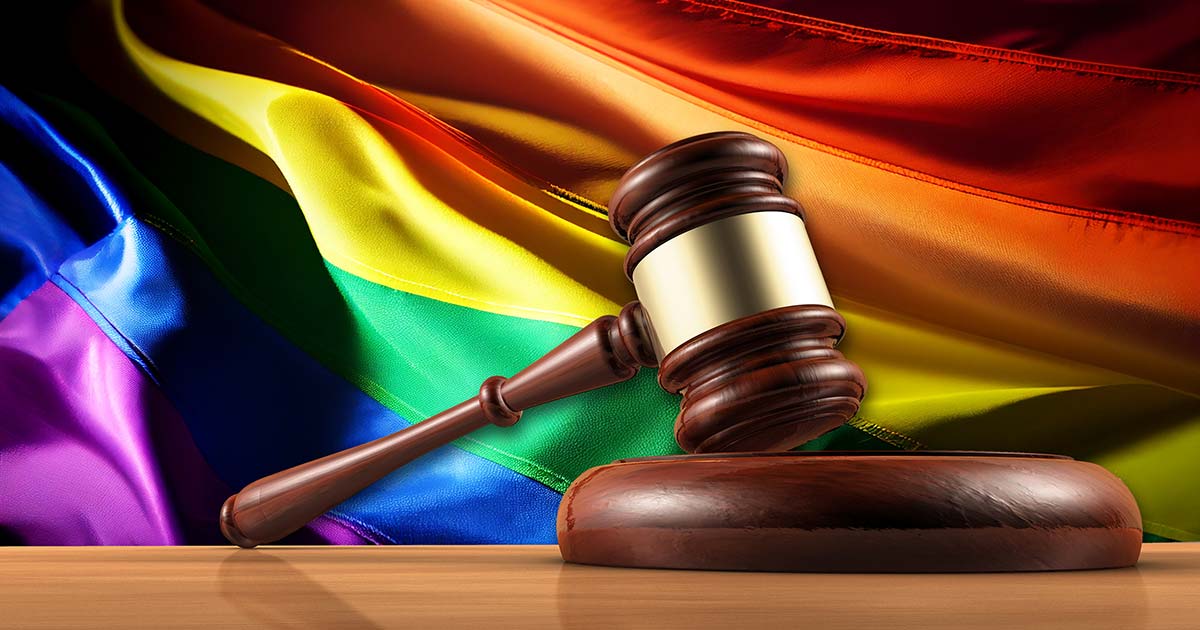Equality Court refuses to rule on LGBTIQ+ asylum discrimination

The Equality Court in Pretoria has dismissed an LGBTIQ+ asylum seeker discrimination case
Activists have expressed their disappointment over the Equality Court’s failure to address blatant discrimination against an LGBTIQ+ asylum seeker by the Department of Home Affairs.
The case revolves around Anold Mulaisho, a Zambian who sought asylum in South Africa due to discrimination based on his sexual orientation as a gay man.
Mulaisho fled to South Africa in 2017 at the age of 22, fearing arrest after his sexual orientation was exposed at his workplace. In Zambia, homosexuality is punishable by up to 14 years of imprisonment.
Rejection of Asylum Application
A Home Affairs Refugee Status Determination Officer (RDSO) dismissed Mulaisho’s 2018 asylum application, deeming it fraudulent. The officer refused to accept Mulaisho’s claim to be both gay and Christian, considering it incompatible.
Access Chapter 2 (AC2), representing Mulaisho, argues that the RDSO’s decision was discriminatory and violated constitutional and legal provisions.
“The decision by the RDSO is riddled with discriminatory remarks and assumptions. Mulaisho’s plea for asylum, grounded in the fear of persecution due to his sexual orientation, was met with scepticism and prejudice,” said AC2 in a statement.
The organisation contends that Home Affairs failed to address this discrimination, violating Section 9 of the Constitution and the Promotion of Equality and Prevention of Unfair Discrimination Act (PEPUDA).
They further argue that the lack of clear reasoning for the rejection hindered Mulaisho’s ability to appeal effectively, as required by the Promotion of Administrative Justice Act (PAJA).
Equality Court Dismisses the Case
On Tuesday, the Equality Court sitting at the Pretoria Magistrates Court dismissed the case, on the basis that internal Home Affairs appeal processes had not been exhausted.
The court asserted that only when the affected person is not satisfied with the final appeal decision can they approach the courts and request that the decision be reviewed.
Magistrate T Truter thus directed Mulaisho to return to Home Affairs to pursue these internal remedies as provided by the Refugees Act. Each party was ordered to pay their own costs.
No Justice for LGBTIQ+ Asylum Seekers
AC2 expressed deep disappointment with the court’s decision, emphasising that Mulaisho had since left South Africa and obtained asylum in another country. The organisation asserted that the case was not about securing his refugee status at this point but rather addressing the discriminatory manner in which he had been treated by Home Affairs.
“The judgment really does not provide justice. The court did not take into consideration the merits of the case wherein our case was around discrimination — that is what we wanted the court to address,” said Mpho Buntse, AC2 spokesperson.
AC2 is assessing the decision and considering whether to take the matter on review. It emphasised that the discrimination faced by Mulaisho is a broader issue that extends beyond his case and highlights government officials using their personal biases and prejudices to influence asylum decisions related to sexual orientation.
“It cannot be correct that the situation is escalating in Africa whilst LGBTIQ+ people still find themselves on the periphery with no assistance. Mulaisho is one such individual who I believe was disadvantaged by the system,” added Buntse.
South African law, including the Refugees Act, unequivocally supports asylum for individuals facing persecution based on sexual orientation and gender identity. Despite this, a 2021 report documented 67 LGBTQ+ asylum applicants who had been rejected due to discriminatory practices by Home Affairs.
Leave a Reply